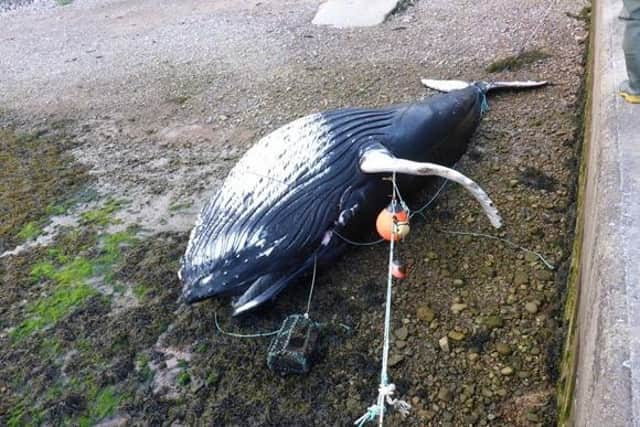Collaboration to tackle entanglement issue in creel fishing industry


Natural heritage agency NatureScot has published a report on the first phase of the Scottish Entanglement Alliance (SEA) project, which brings together commercial creel fishers, research scientists, and marine mammal conservation and rescue charities to better understand its scale and impact in Scottish waters.
Entanglements in fishing gear and marine debris have both welfare and conservation impacts on marine animals, causing injury, impairment and death. It is the largest identified cause of death due to human activity in minke and humpback whales in Scottish waters, and the only known cause of human-driven mortality in basking sharks and marine turtles.
Advertisement
Hide AdAdvertisement
Hide AdThe project involved interviewing 159 creel fishers about their fishing practises and their experience of entanglements which revealed that entanglements are hugely under-reported. They also participated in training events and workshops to promote best practise, reduce entanglement risk and safely disentangle large marine animals from fishing gear.
Dr Kirstie Dearing, NatureScot’s fisheries adviser, said: “We’re really heartened by the strong commitment and willingness of the fishing industry to work towards safe and sustainable solutions on the issue of entanglement. We will only solve this problem by working in collaboration on potential legislative changes. The new reporting obligation will also help us to understand the extent of the issue more clearly.”
The report recommends a number of ways to combat the problem, including weighted ropes, tighter regulation to limit the amount of gear in the water and caps on creel numbers.
Bally Philp, from the Scottish Creel Fisherman’s Federation (SCFF), added: “The project demonstrates when an alliance of government, industry, academics and conservation groups collaborate, solutions can be progressed to a degree that would otherwise be hard to achieve. We look forward to collaborating with our partners on sourcing funding for the next phase of this project.”